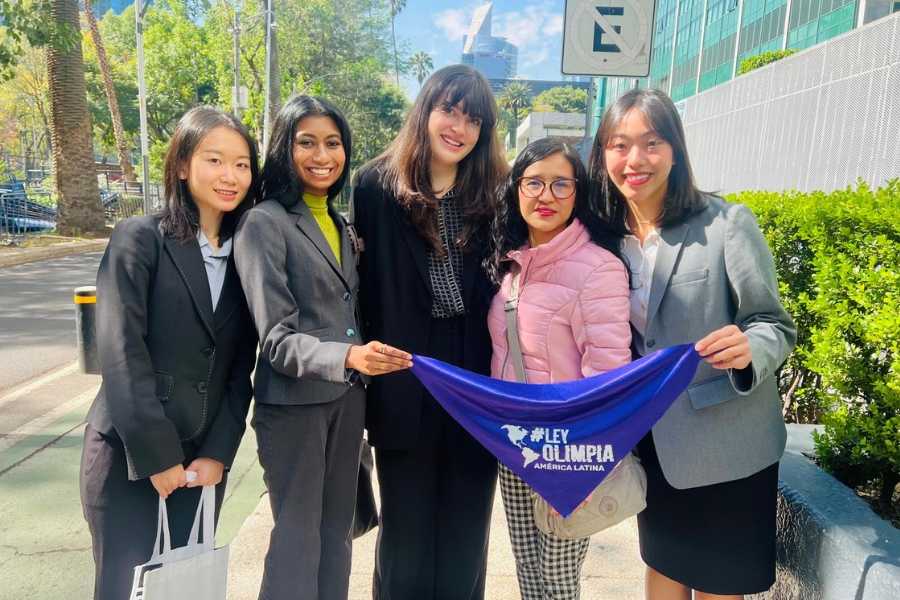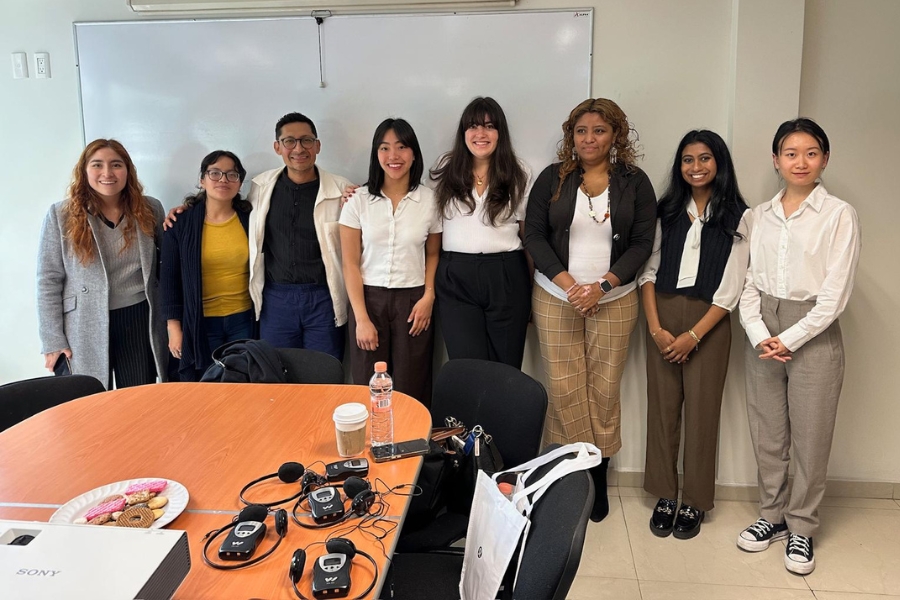Students Examine Women’s Political Participation and Gendered Political Violence in Study Trip to Mexico

As part of the SAIS Women Lead capstone program, a team of four SAIS students traveled to Mexico City in April 2025 to examine a growing but often overlooked threat to democracy: the social media-facilitated harassment of politically active women.
Their project, “Social Media and Democracy: Evaluating the Impact of Gender-Based Violence on Women’s Political Participation in Mexico,” explored how platforms like Facebook and X (formerly Twitter) have become complicated fora that amplify misogynistic disinformation, as well as unifying arenas for resistance.
The student team—Emily Henson, Sam Ramesh, Jingxuan Li, and Sarah Cai—conducted a two-week field study in Mexico City under the guidance of faculty leads, Vice Dean Chiedo Nwankwor, and Professor Hyun Ji Rim. The trip was part of a client-based research collaboration with the U.S. State Department’s Foreign Service Institute.
The central question driving the project was: How does social media-facilitated gendered political violence influence women’s willingness and ability to participate in Mexican politics?
“As a student interested in a career in diplomacy with a background in Spanish, I found that this capstone provided an invaluable opportunity to collaborate with local interlocutors and government counterparts,” said Emily Henson. “It enabled me to gain insight into the challenges faced by women pursuing political office in Mexico while serving as a tangible, real-world application of the work I hope to take on in my future career—an aspect that piqued my interest in this particular capstone.”
Through interviews and focus groups with local stakeholders across government, academia, journalism and non-profit organizations to cover the diversity of perspectives on gendered political violence, the team uncovered a complex dynamic: social media serves as both a platform for civic engagement and a stage for coordinated harassment.
In the words of one Mexican NGO representative, “Women in the political sphere are more exposed to violence, and as a result, violence becomes viral on social media.”
One of the key findings from the fieldwork was the U-shaped relationship between online harassment and women's representation in public office. Activists recounted female politicians being called “whores” or “ice queens” online, subjected to smear campaigns and even physical threats. Some, fearing for their families, chose to step back from public life altogether.
In their discussions with willing parties, the students asked important questions to get at the core issues surrounding gender-based political violence and to understand the realities that many women face across Mexico. Particularly alarming were the stories of targeted violence against Indigenous and LGBTQ+ women, whose intersecting identities made them even more vulnerable.
A representative from Article 19, an international organization that promotes freedom of expression, noted that “violence is something normal in Mexico and we need to change the system because women are silenced; they stop covering risky stories and are afraid for their own well-being.”
The team’s recommendations call for multi-sectoral collaboration. Legal reforms like Ley Olimpia, which criminalizes digital violence, must be fully implemented and paired with better platform accountability and survivor support.
From literature reviews to in-country fieldwork, the SAIS Women Lead capstone allowed these students to engage deeply with questions of digital governance, gender equity, and democratic resilience, and learn from a diverse set of individuals and organizations making a difference in this important space for gender parity.
Enjoyed reading about Women’s Political Participation and Gendered Political Violence in Study Trip to Mexico? Explore all that our Washington, D.C. campus has to offer.